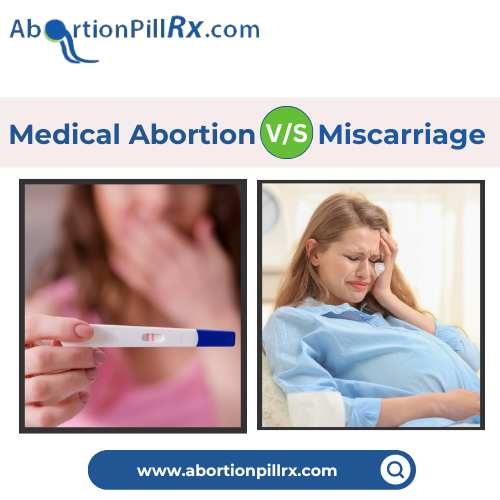Miscarriage vs abortion, are almost the same but there’s a slight difference between the two. Both terminate the pregnancy but they have different ways. Miscarriage is unintentional while medical abortion is intentional.
A woman’s journey of pregnancy is filled with lots of ups and downs, and unexpected events which is a huge concern. People sometimes get confused that miscarriage and medical abortion are the same thing. But there’s a slight difference between the two. Let’s get into the subject of miscarriage vs abortion.
What is Miscarriage?
Miscarriage is also known as spontaneous abortion or early pregnancy loss, if this happens after the 20th week of pregnancy, then it is called stillbirth. Miscarriage is caused unintentionally due to various reasons. Some of them include:
- Drug/alcohol abuse
- Smoking
- Bleeding disorders
- Hormonal issues
- Obesity
- Diabetes
- Problem with the immune system
- The issue with women’s reproductive organs
Data shows around 10% to 25% of abortions take place during 7 weeks of pregnancy. Once the fetus’s heartbeat is detected, the chances of miscarriage are reduced. Signs of miscarriage include abdominal pain and vaginal bleeding (passing clots).
What is medical abortion?
Medical abortion is abortion with pills, a safe and effective method to end the pregnancy. Unlike miscarriage medical abortion is done unintentionally when there’s an unintended, unplanned, or unwanted pregnancy. Abortion is a choice women make, which she has every right to. This decision could be influenced by various reasons:
- Financial strain
- Health concerns
- Personal or family issues
- Timing
- Issues with the partner
- Emotional distress
- Barriers/stigma
- unplanned/unwanted pregnancy
- Threat to mother’s and child’s life
Medical abortion can be done up to 9 weeks of pregnancy, at your home without any interruption. Most women choose medical abortion because it’s an easy and private process.
Side effects of medical abortion:
- Nausea
- Vomiting
- Fatigue
- Headache
- Abdominal pain
- Heavy vaginal bleeding
Complications: Miscarriage vs Medical abortion
Both miscarriage and medical abortion can have some negative effects on a woman’s body.
Miscarriage can cause complications like:
- Increase in body temperature
- Shivers and cold sensations
- Discomfort in the lower abdomen
- Smelly vaginal discharge
- Uterine infections
Medical abortion can cause complications like:
- Infections
- Fever and chills
- Prolonged Hemorrhage
- Uterine rupture
- Cervical deformity
- Incomplete abortion
Miscarriage vs Abortion
Intent: Intent is the huge difference between miscarriage and medical abortion. While miscarriage is unintentional, medical abortion is done purposefully, a decision taken consciously.
Medical intervention: Abortions require medical intervention either through medical abortion or surgical abortion. Whereas surgical abortion is a natural occurrence and most of the time does not need a medical intervention.
Timing: Miscarriage is very uncertain, it can occur during any stage of your pregnancy, and chances are less if the heartbeats are detected. At the same time, medical abortion can only be performed up to the 9 weeks of pregnancy.
Causes: The cause of miscarriage can relate to any biological issues, and it’s not in anyone’s control. Abortion is a personal choice due to various factors that are mentioned above.
Emotional effect: Both miscarriage and medical abortion can take an emotional toll on an individual. Though the emotional response to abortion can involve mixed feelings, after a miscarriage you can feel confusion, grief, and sadness.
Coping with your feelings
You may feel completely different if you had to have an abortion to save your life during a planned pregnancy than if you miscarried before you knew you were pregnant. However, there is no correct or incorrect way to feel. Your emotions are personal and important whether you had a miscarriage or an abortion. You should take as much time as you need to reflect on your emotions and ask for help if necessary.
Having a miscarriage or abortion may provoke many emotions like sadness, grief, confusion, emotional distress, relief, and many more.
However, you may experience something quite different. The intensity of these feelings, their duration, and when they occur can vary greatly between individuals.
Conclusion
Lastly, understanding these differences allows you to approach the unforeseen events of pregnancy using more knowledge and care. Whether you’re considering abortion or dealing with the emotional aftermath of a miscarriage, having this knowledge can help make your journey proceed more smoothly.
Getting help from people around you can be beneficial, but everyone deals with these situations differently. You may need to talk about your feelings or take some time alone to reflect. Allow yourself to be vulnerable in a way that is comfortable for you. Don’t feel guilty if your feelings vary from what others expect or if you process them differently.



